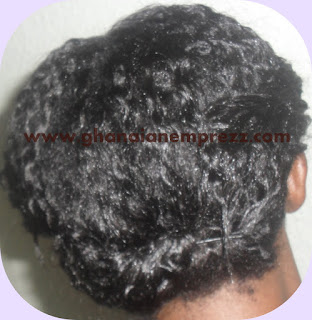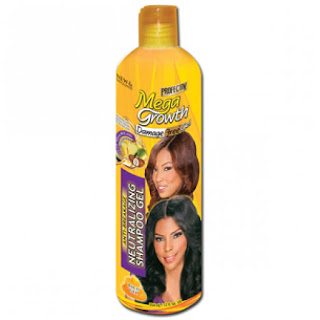What is dandruff?
What is dandruff? Dandruff is the shedding of dead skin cells from the scalp. As skin cells die, a small amount of flaking is normal. For most teens and adults, dandruff symptoms are easy to spot: white, oily-looking flakes of dead skin that dot your hair and shoulders, and a possibly itchy, scaly scalp.
Dandruff can have several causes, including:
Irritated, oily skin (seborrheic dermatitis).This condition, one of the most frequent causes of dandruff, is marked by red, greasy skin covered with flaky white or yellow scales. Seborrheic dermatitis may affect your scalp and other areas rich in oil glands, such as your eyebrows, the sides of your nose and the backs of your ears, your breastbone (sternum), your groin area, and sometimes your armpits.
Not shampooing often enough. If you don't regularly wash your hair, oils and skin cells from your scalp can build up, causing dandruff.
A yeastlike fungus (malassezia).Malassezia lives on the scalps of most adults. But, for some, it irritates the scalp and can cause more skin cells to grow. The extra skin cells die and fall off, making them appear white and flaky in your hair or on your clothes.
Dry skin. Flakes from dry skin are generally smaller and less oily than those from other causes of dandruff. And, redness or inflammation is unlikely. You'll probably have dry skin on other parts of the body, such as your legs and arms, too.Sensitivity to hair care products (contact dermatitis). Sometimes sensitivities to certain ingredients in hair care products or hair dyes can cause a red, itchy, scaly scalp.
(From BGLH, Sulfur is often referred to as one of the building blocks of hair, with good reason. Our hair is comprised of a durable protein called keratin, which is high in sulfur content. Sulfur is required for proteins (like keratin) to maintain their shape, which contributes directly to the overall health, strength, and elasticity of hair. More exciting is that there are studies indicating that sulfur has positive effects on hair growth. The life cycle of your hair consists of 3 phases: growing, resting, and shedding. Sulfur has been proven to lengthen the growing phase of your hair. A longer growing phase (before resting and shedding) means longer hair. Lastly, sulfur also has been linked to treating, relieving, and decreasing the occurrences of psoriasis, dandruff, eczema, and folliculitis.
Our Sulphur oil blend also has essential oils to combat dandruff. contact 0541458372 to purchase one.

For tips, visit
http://www.ghanaianemprezz.com/2017/07/6-more-ways-to-use-aloe-vera-on-your.html
Dandruff can have several causes, including:
Irritated, oily skin (seborrheic dermatitis).This condition, one of the most frequent causes of dandruff, is marked by red, greasy skin covered with flaky white or yellow scales. Seborrheic dermatitis may affect your scalp and other areas rich in oil glands, such as your eyebrows, the sides of your nose and the backs of your ears, your breastbone (sternum), your groin area, and sometimes your armpits.
Not shampooing often enough. If you don't regularly wash your hair, oils and skin cells from your scalp can build up, causing dandruff.
A yeastlike fungus (malassezia).Malassezia lives on the scalps of most adults. But, for some, it irritates the scalp and can cause more skin cells to grow. The extra skin cells die and fall off, making them appear white and flaky in your hair or on your clothes.
Dry skin. Flakes from dry skin are generally smaller and less oily than those from other causes of dandruff. And, redness or inflammation is unlikely. You'll probably have dry skin on other parts of the body, such as your legs and arms, too.Sensitivity to hair care products (contact dermatitis). Sometimes sensitivities to certain ingredients in hair care products or hair dyes can cause a red, itchy, scaly scalp.
(From BGLH, Sulfur is often referred to as one of the building blocks of hair, with good reason. Our hair is comprised of a durable protein called keratin, which is high in sulfur content. Sulfur is required for proteins (like keratin) to maintain their shape, which contributes directly to the overall health, strength, and elasticity of hair. More exciting is that there are studies indicating that sulfur has positive effects on hair growth. The life cycle of your hair consists of 3 phases: growing, resting, and shedding. Sulfur has been proven to lengthen the growing phase of your hair. A longer growing phase (before resting and shedding) means longer hair. Lastly, sulfur also has been linked to treating, relieving, and decreasing the occurrences of psoriasis, dandruff, eczema, and folliculitis.
Our Sulphur oil blend also has essential oils to combat dandruff. contact 0541458372 to purchase one.
For tips, visit
http://www.ghanaianemprezz.com/2017/07/6-more-ways-to-use-aloe-vera-on-your.html



Comments
Post a Comment
Speak your mind; I love to hear from you!